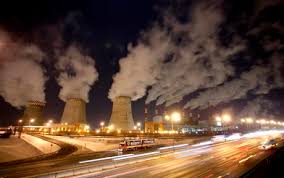Climate change is one of the gravest challenges facing humanity. The EU is working for a global agreement to reduce emissions of greenhouse gases and is leading the way by taking bold action of its own. In a landmark decision in December 2008, EU leaders approved a comprehensive package of emission-cutting measures. The plan aims to reduce greenhouse gases at least 20% by 2020 (compared with 1990 levels), raise renewable energy's share of the market to 20% and cut overall energy consumption by 20% (compared with projected trends). Within the drive for more renewable energy, it was agreed that 10% of fuel for transport should come from bio fuels, electricity or hydrogen.
Emissions trading
A cornerstone of the EU’s climate change strategy, the emissions trading system rewards companies that reduce their CO2 emissions and penalizes those that exceed limits.
Introduced in 2005, the scheme takes in about 12,000 factories and plants responsible for about half the EU’s emissions of CO2, the main gas blamed for global warming.
Under the system, EU governments set limits on the amount of carbon dioxide emitted by energyintensive industries like power generation and steel and cement makers. If these businesses want to emit more CO2 than their quota, they have to buy spare permits from more efficient companies.
In the future, more industries will be subject to quotas, including airlines and petrochemical companies. EU countries will also be able to offset emissions by buying credits from projects to reduce CO2 in non-EU countries.
.jpg)





